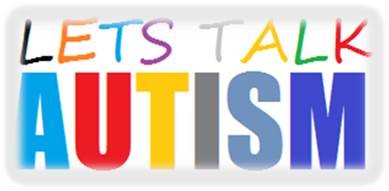What is Autism?
All people are different and there are differences in the way our brains experience the world.
Autism is a different way of thinking, processing and taking in information about the world. An autistic person might also process internal thoughts and sensations in different ways.
Autism is a way a person is made and is the way they are all their life, and every autistic person is different. Autistic people can come up with different solutions and have great creative and inventive ideas. They often have special interests they can focus very well on, sometimes to the exclusion of other demands.
But some autistic people feel that they have to mask their differences,
and camouflaging can lead to internal anxiety and depression. Making adjustments can help autistic people be themselves.
They have many abilities:
Autistic people run businesses, work in industry, have families, and have all kinds of different jobs. Some autistic people need more support for daily living in adulthood.
Autistic people may not use verbal language to communicate, some struggle to manage daily tasks and may need a lot of help. They might also find joy in their intense interests.
Labels such as ‘high functioning’ or ‘low functioning’ are not helpful because of the wrong assumptions and expectations these can cause.
Co-Conditions:
Autistic people can also be diagnosed with ADHD, dyspraxia, dyslexia, epilepsy, anxiety disorders and many other conditions. Some also see PDA or Pathological Demand Avoidance as part of the autistic spectrum.
No two Autistic people are the same:
As a spectrum condition, autistic people will share similar difficulties; and the impact autism has on an individual is unique, with no two autistic people being exactly the same.
Difficulties in social “reading”
Non-autistic people have complex social rules that don’t always make sense to them. An autistic person may have different perspectives and thought patterns and sensory processing which can impact how they may interact with others. The typical social world can be overwhelming and the demands of daily life difficult to deal with.
Autistic people have many strengths:
They have much potential that can valuable in work or learning in a particular area. We at Reachout ASC are a neurodiverse team. We believe that listening to and learning from autistic people and getting the setting and environment right, autistic people can thrive.
Autistic people make up about 1 in 30 of the population,
and autistic people are part of every culture, race and strata of societies. Autism has been part of human diversity for all time and is likely to be equal amongst male, female and non-binary people. We are still learning about autism and how we have missed so many autistic people, especially girls, because of our narrow understanding from the 1940s. If you want to read about this please read “Neurotribes: The Legacy of Autism and How to Think Smarter About People Who Think Differently” by Steve Silberman (2015)
Autism and the education system:
We know that the education system is not designed in a way that really suits the learning styles of many autistic children and young people but we work with schools to help them make school successful for autistic pupils. We understand the complex relationship between autism, anxiety, masking and mental health and will support autistic young people to understand and celebrate who they are.
Let us teach you more in our online and face to face courses.
Follow us on social media and subscribe to our weekly newsletter to keep up to date with our latest news!

